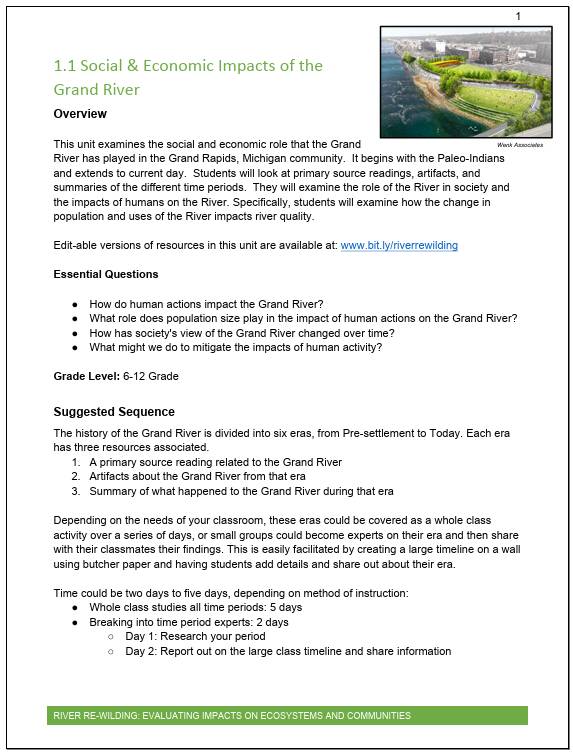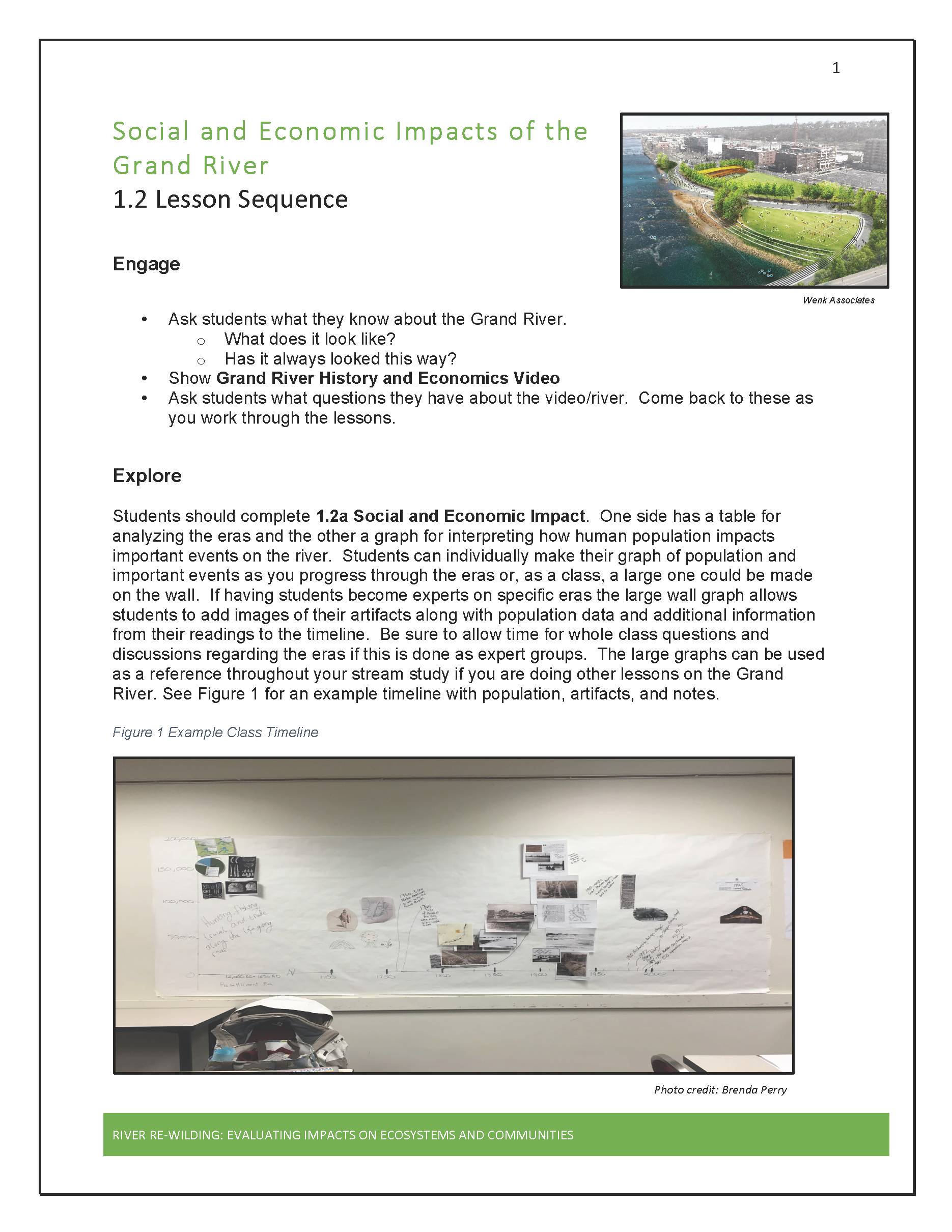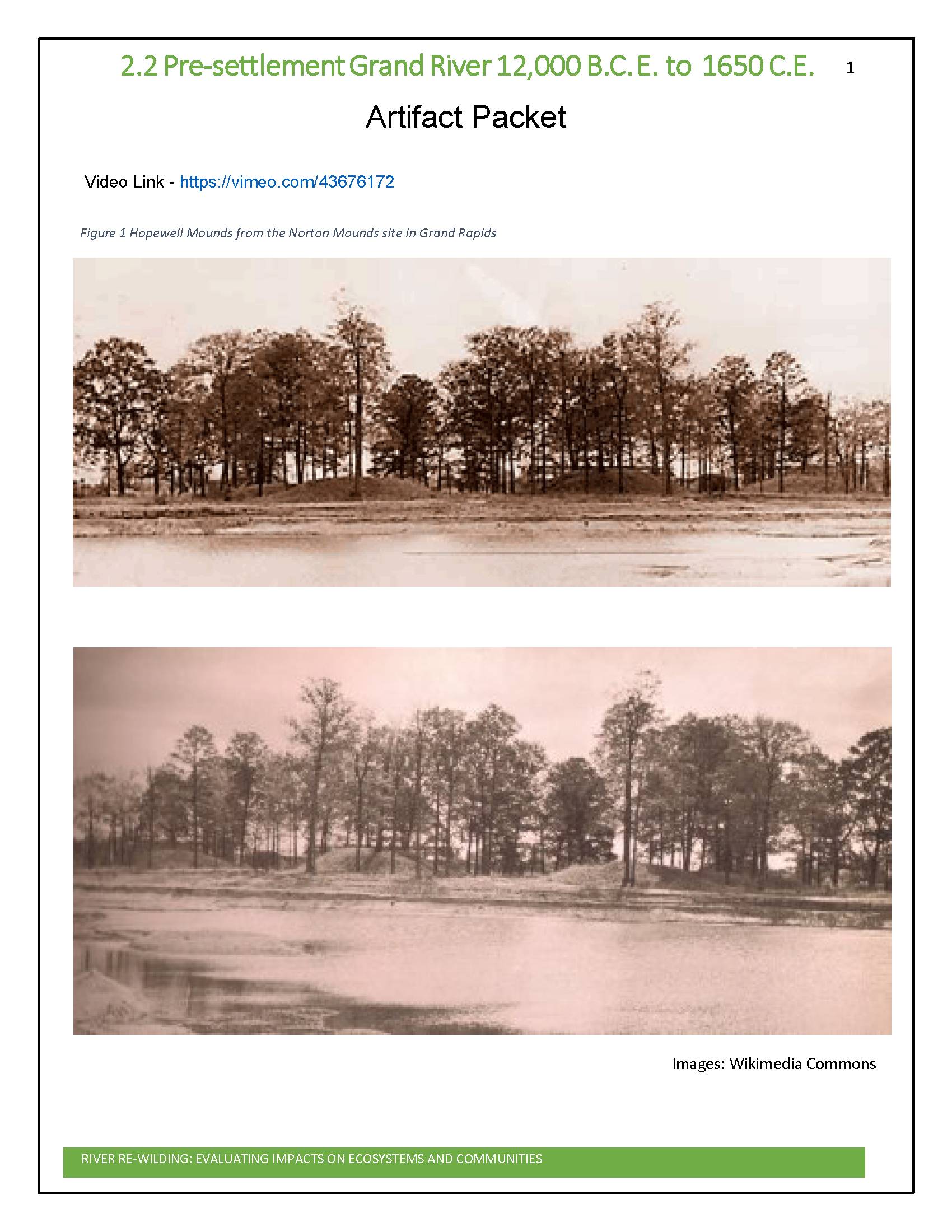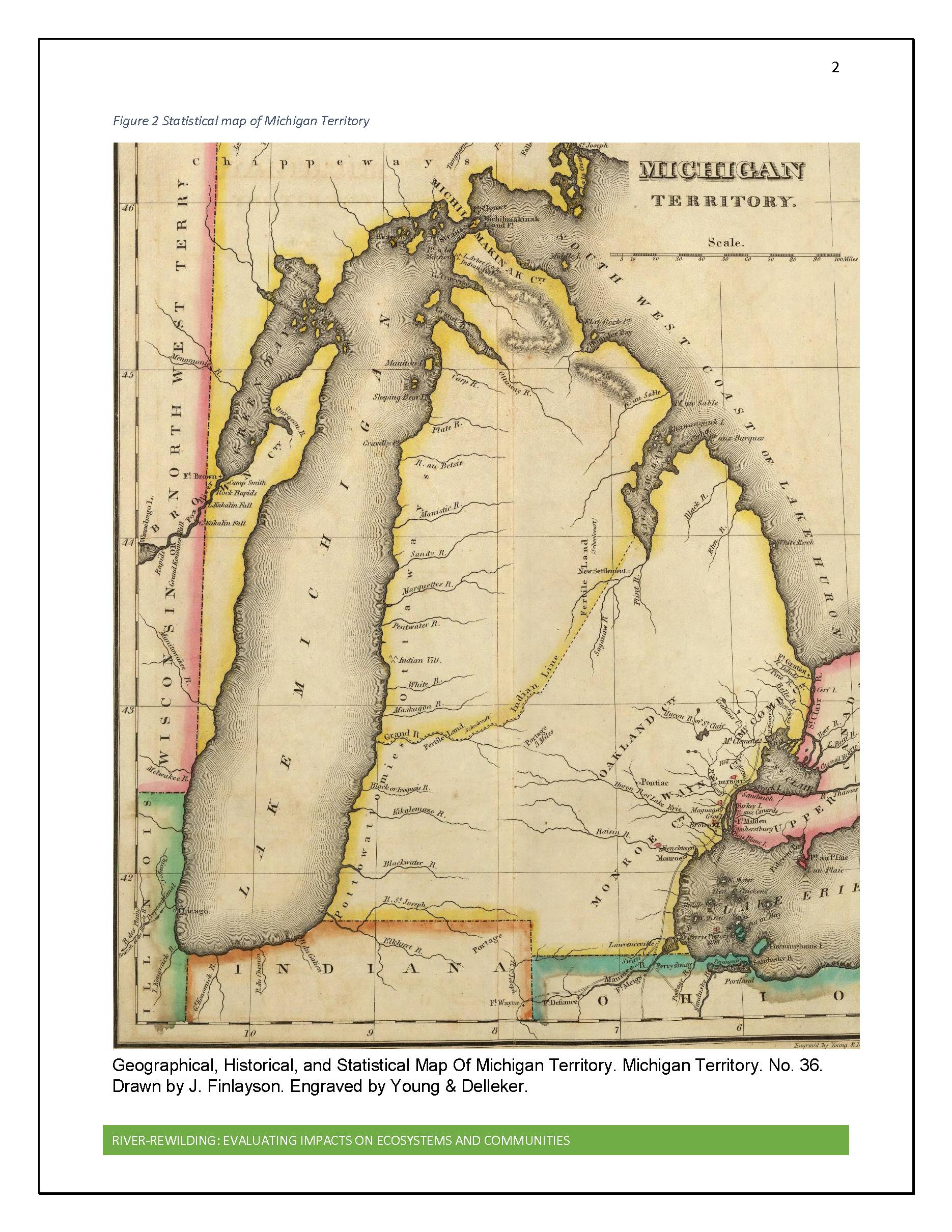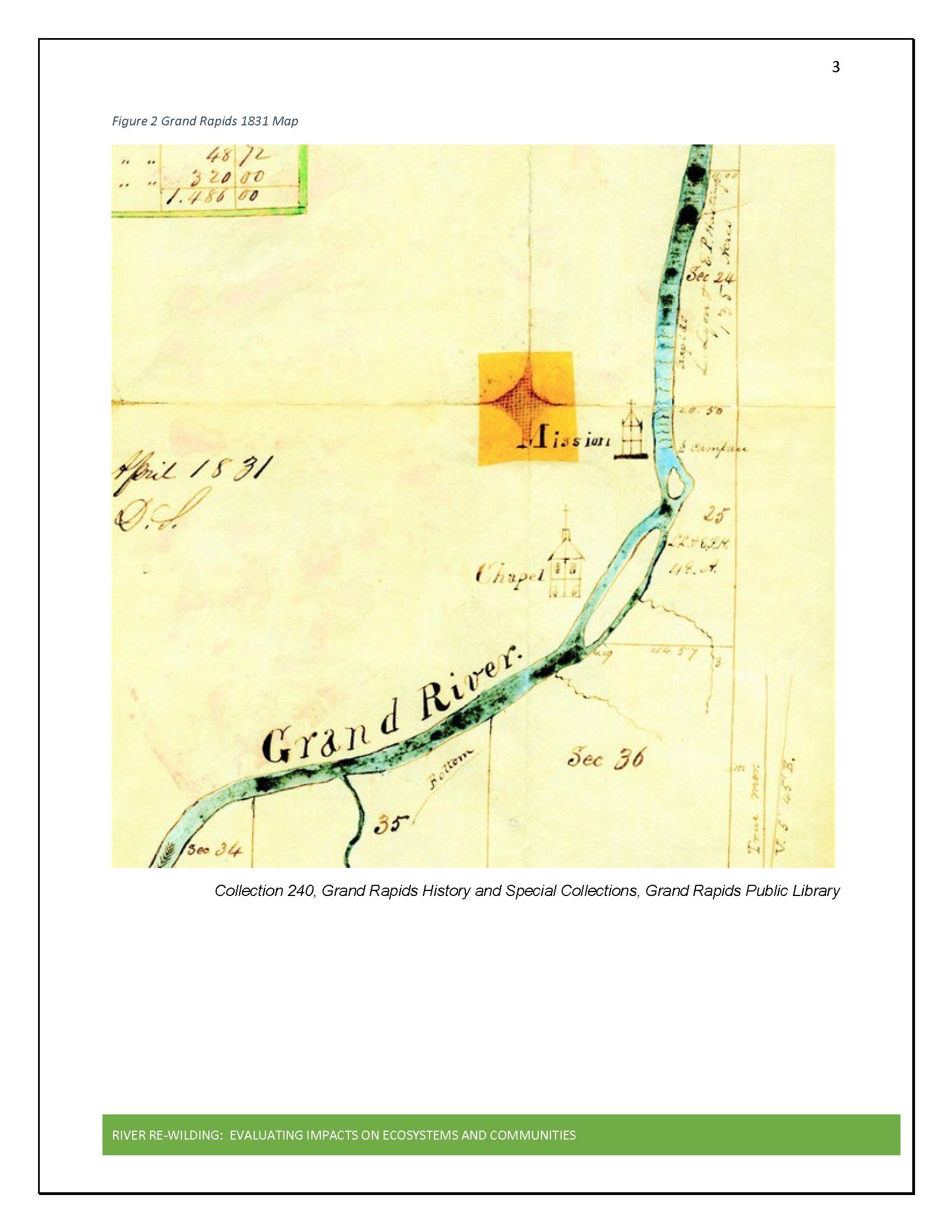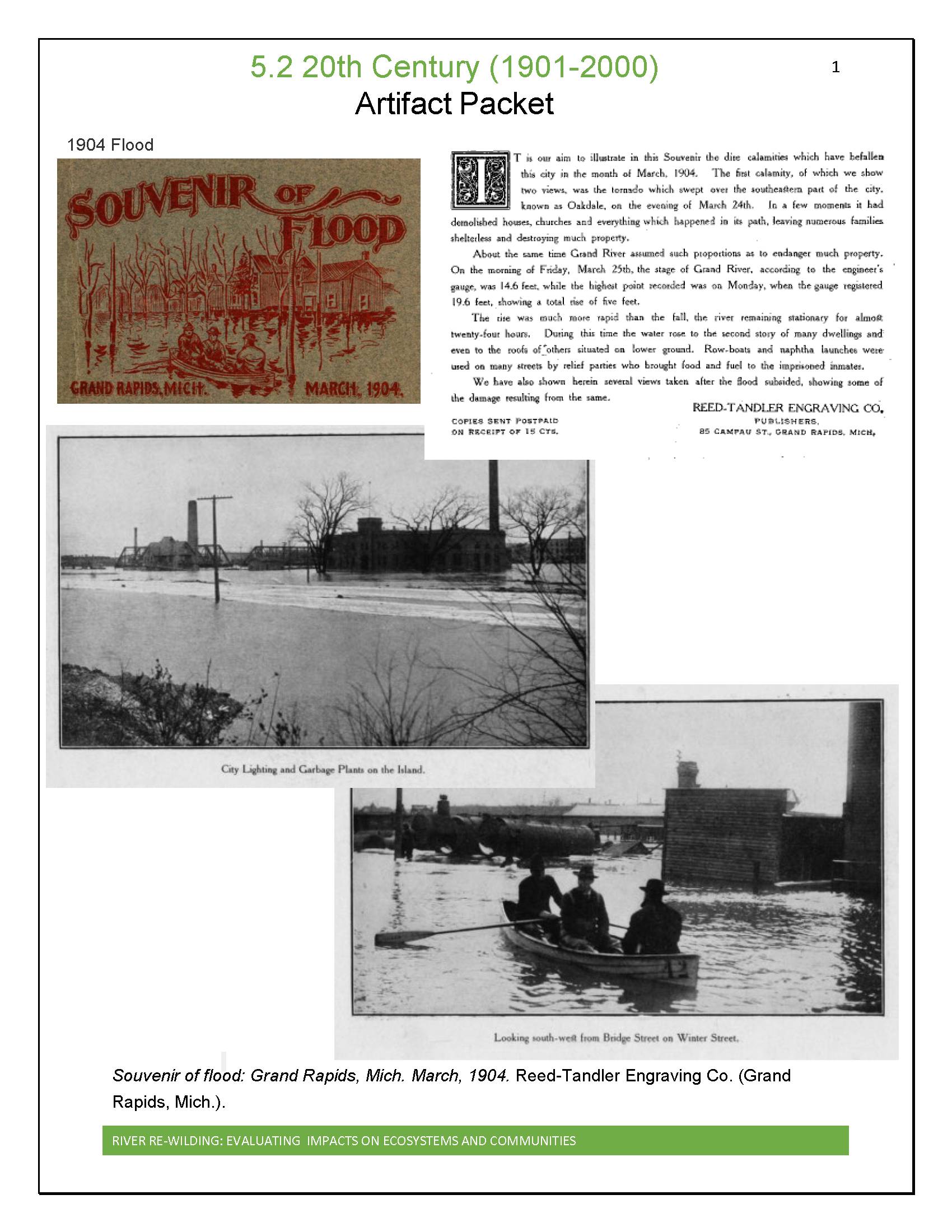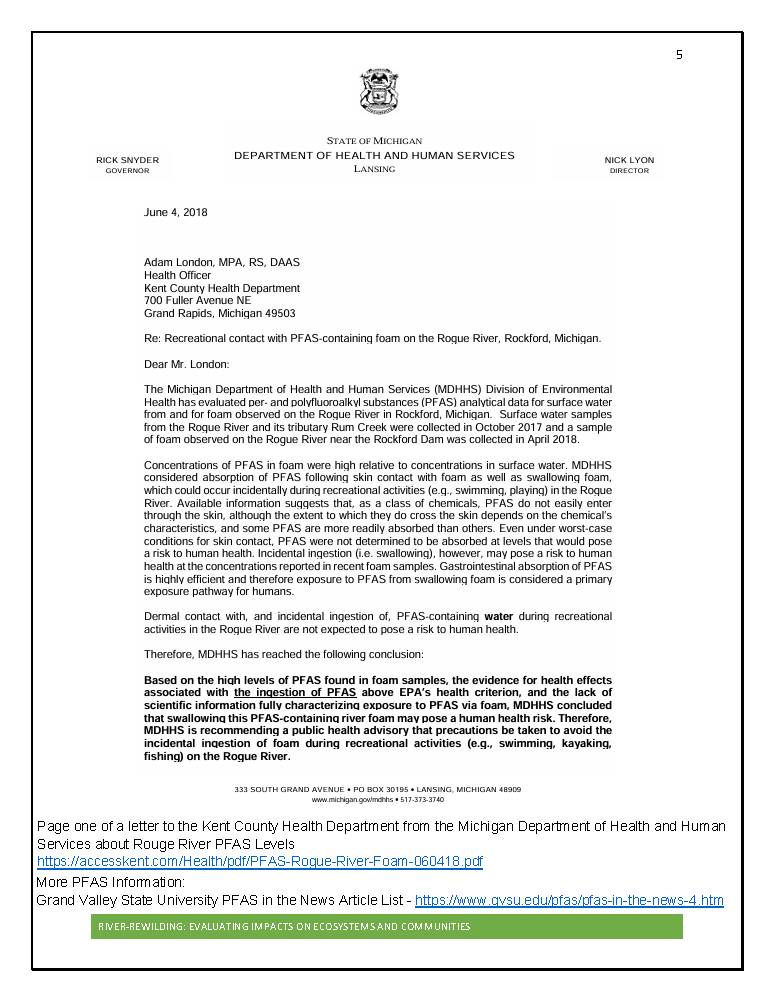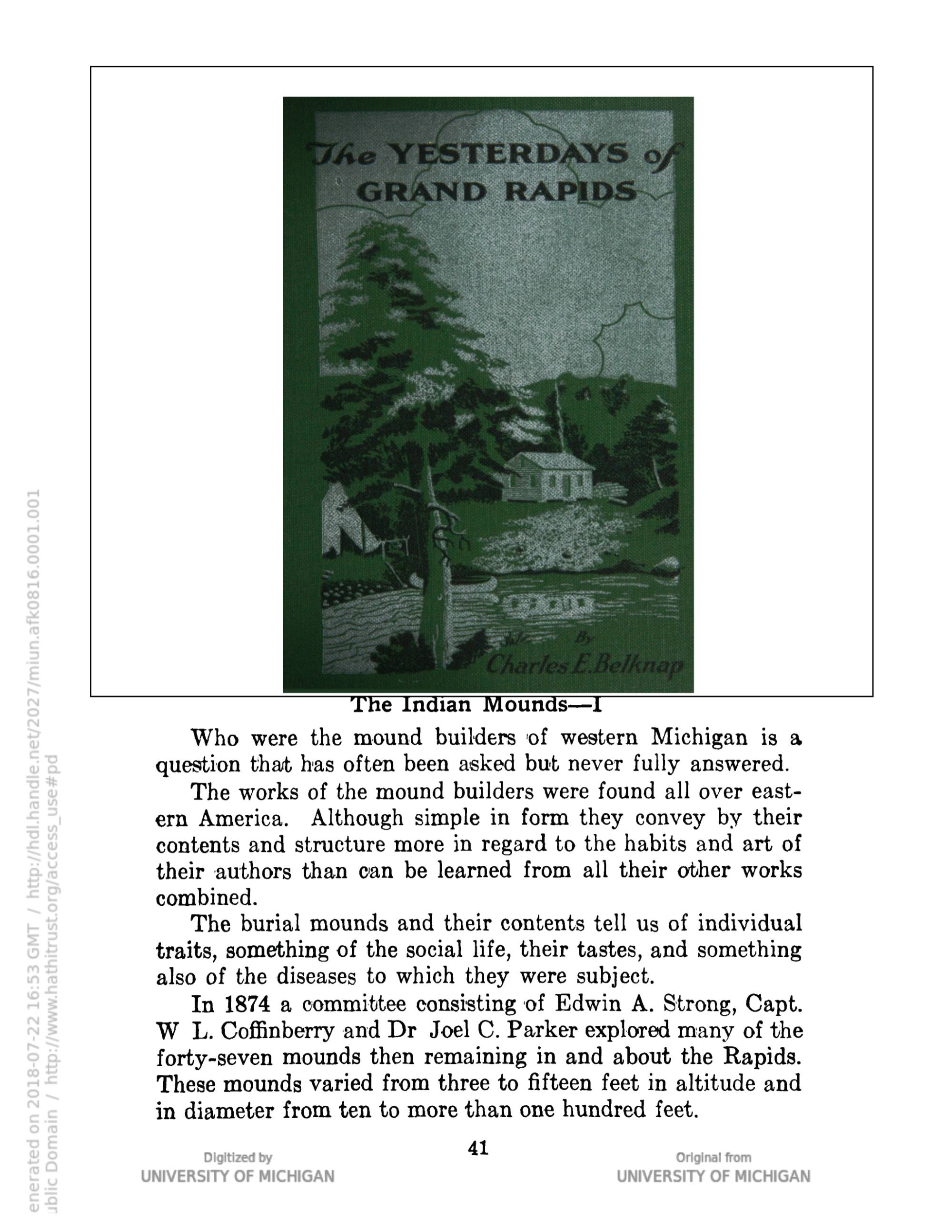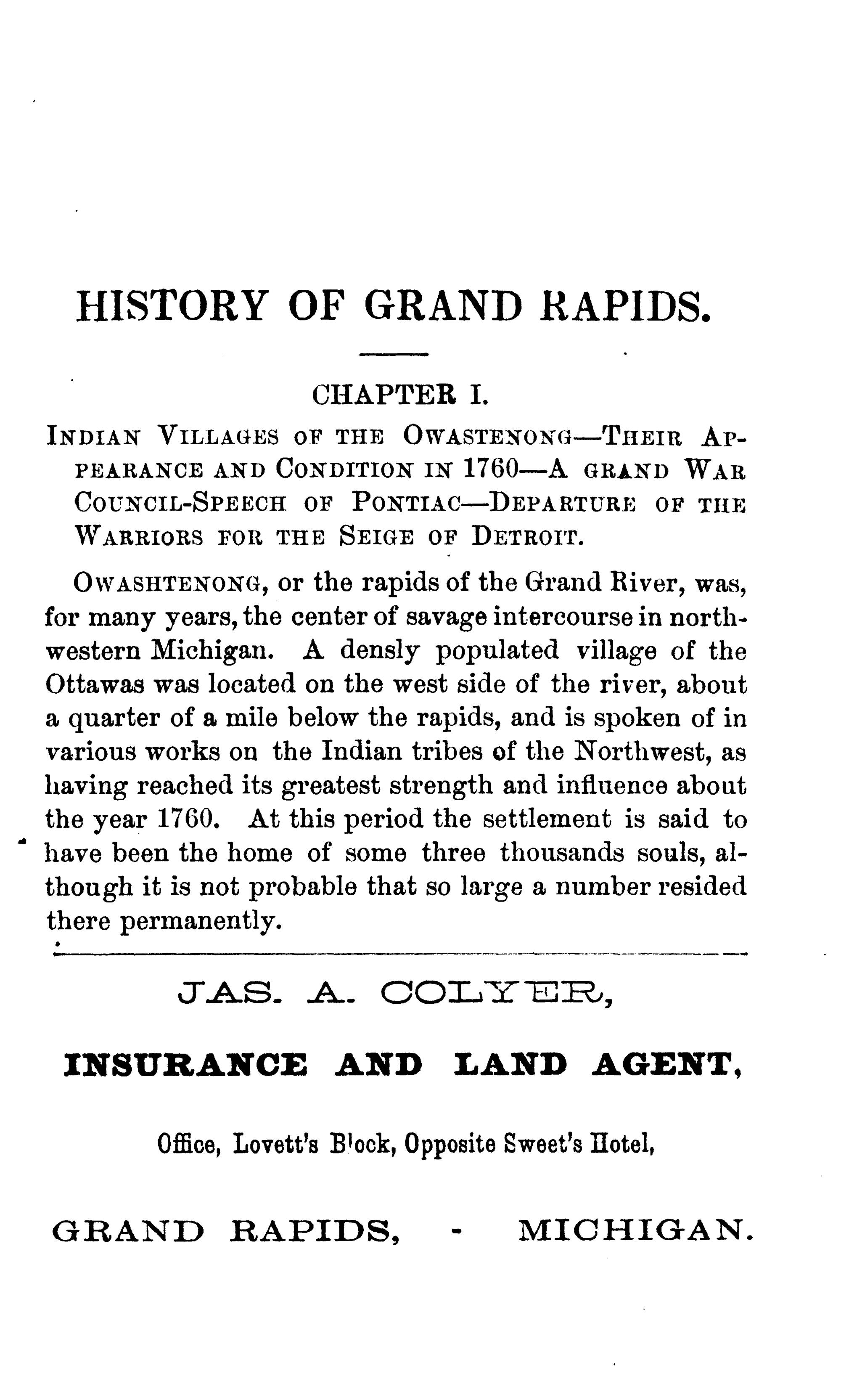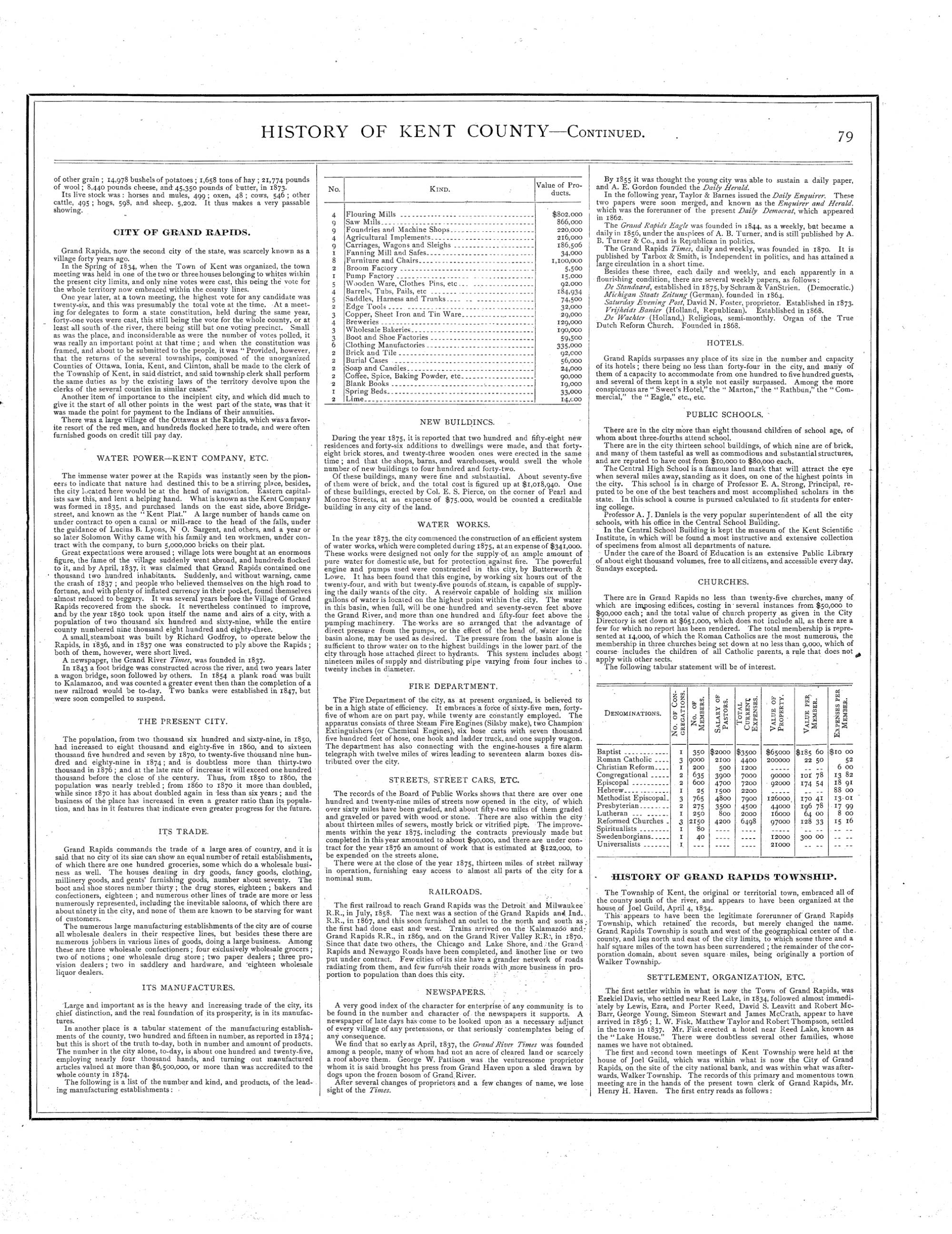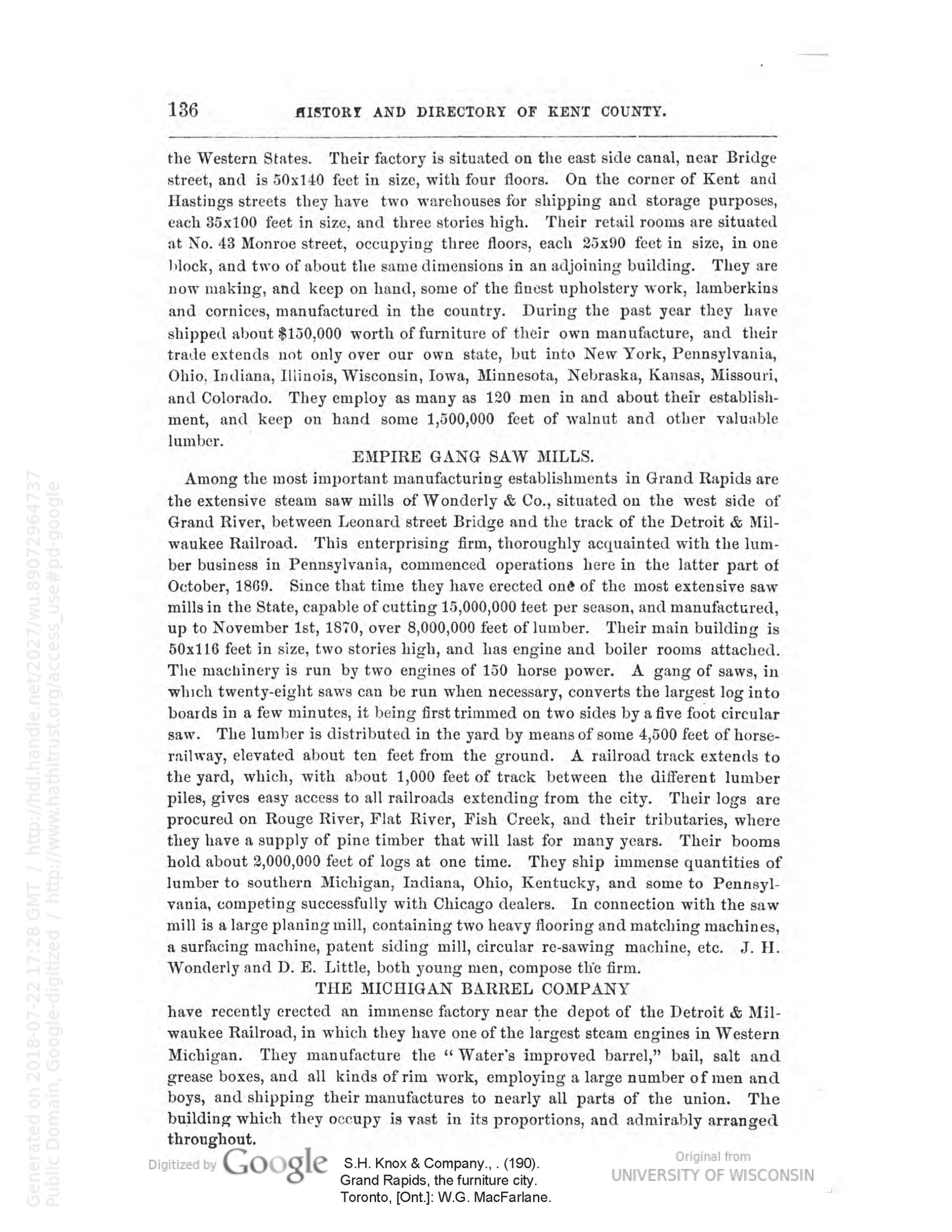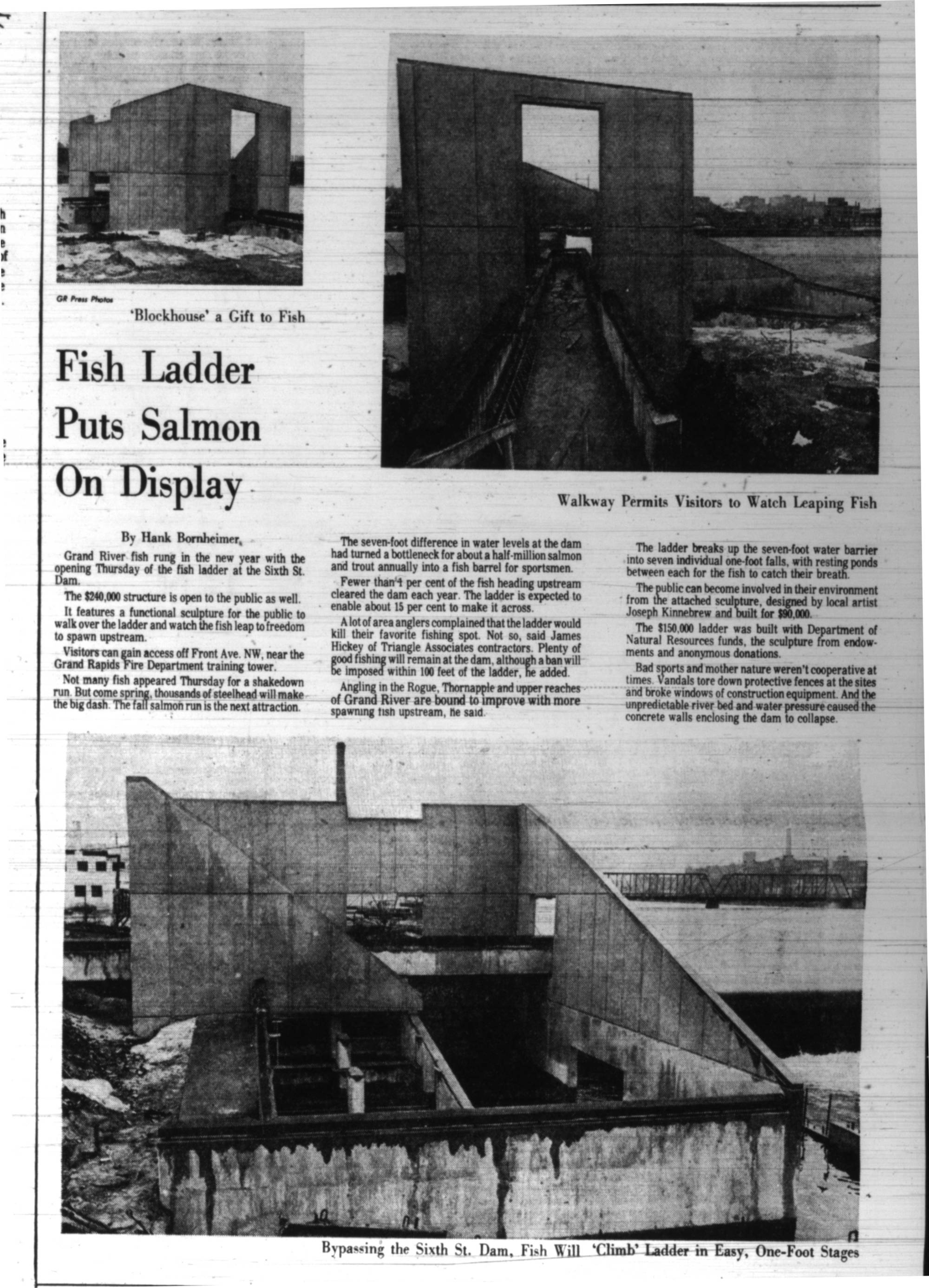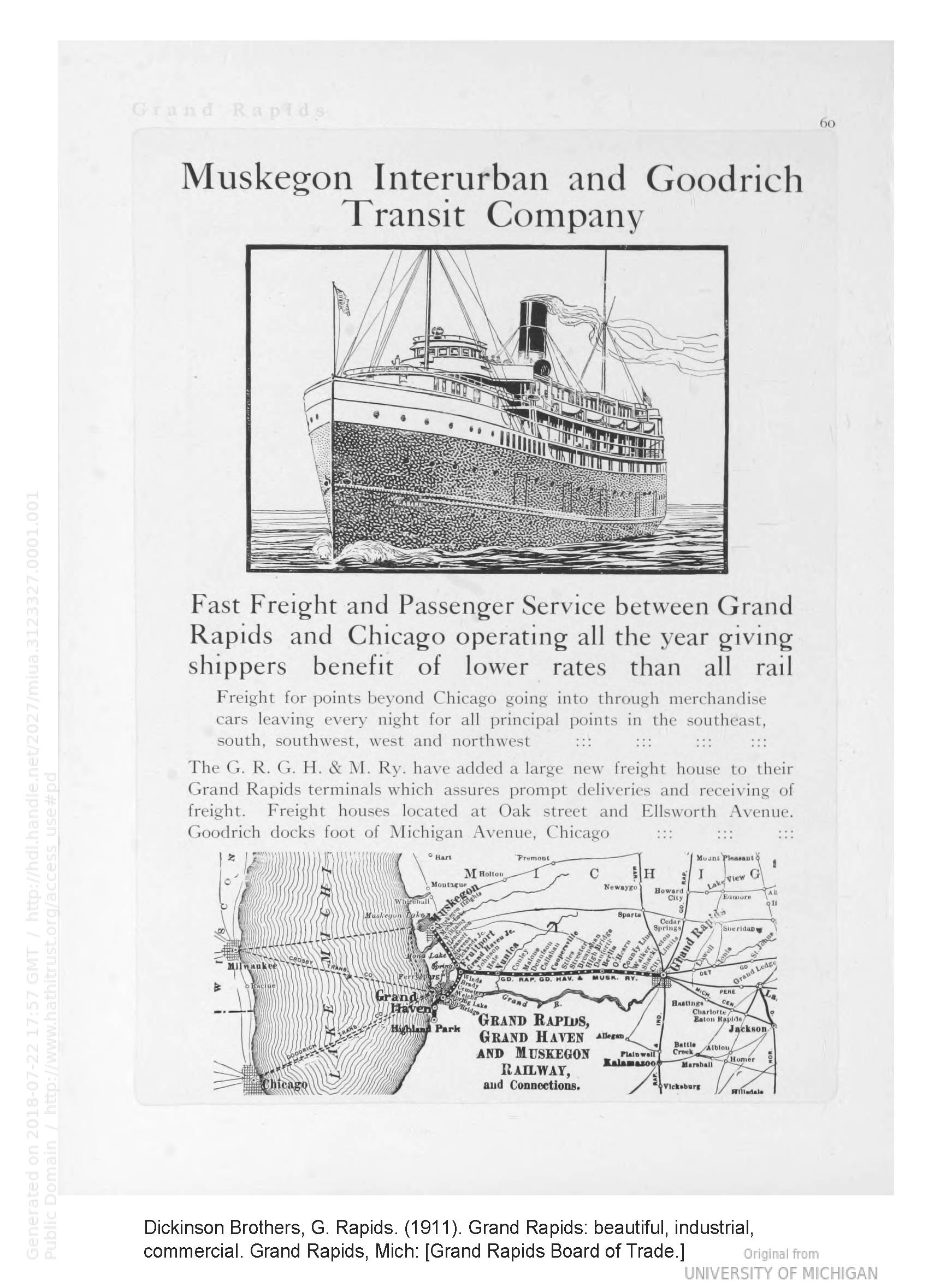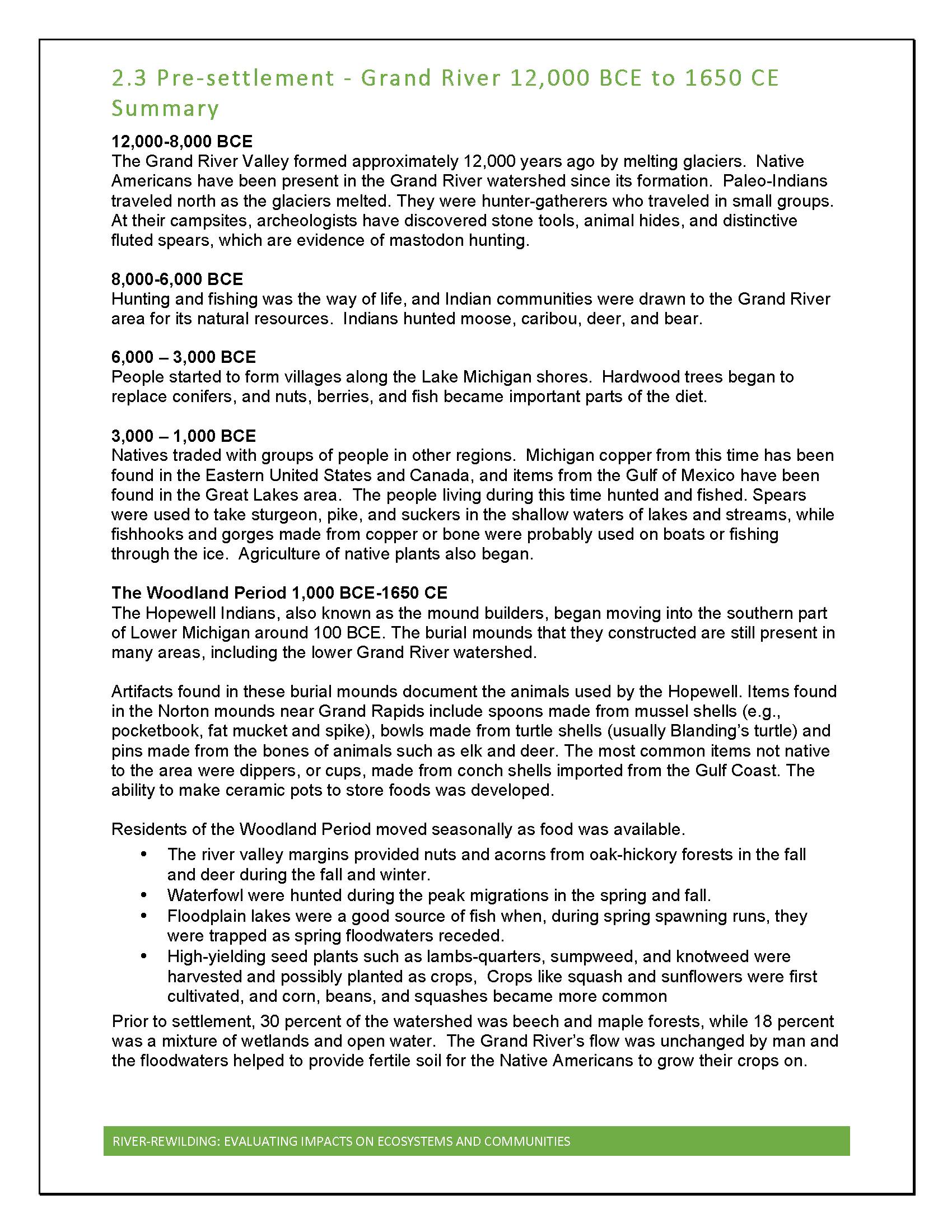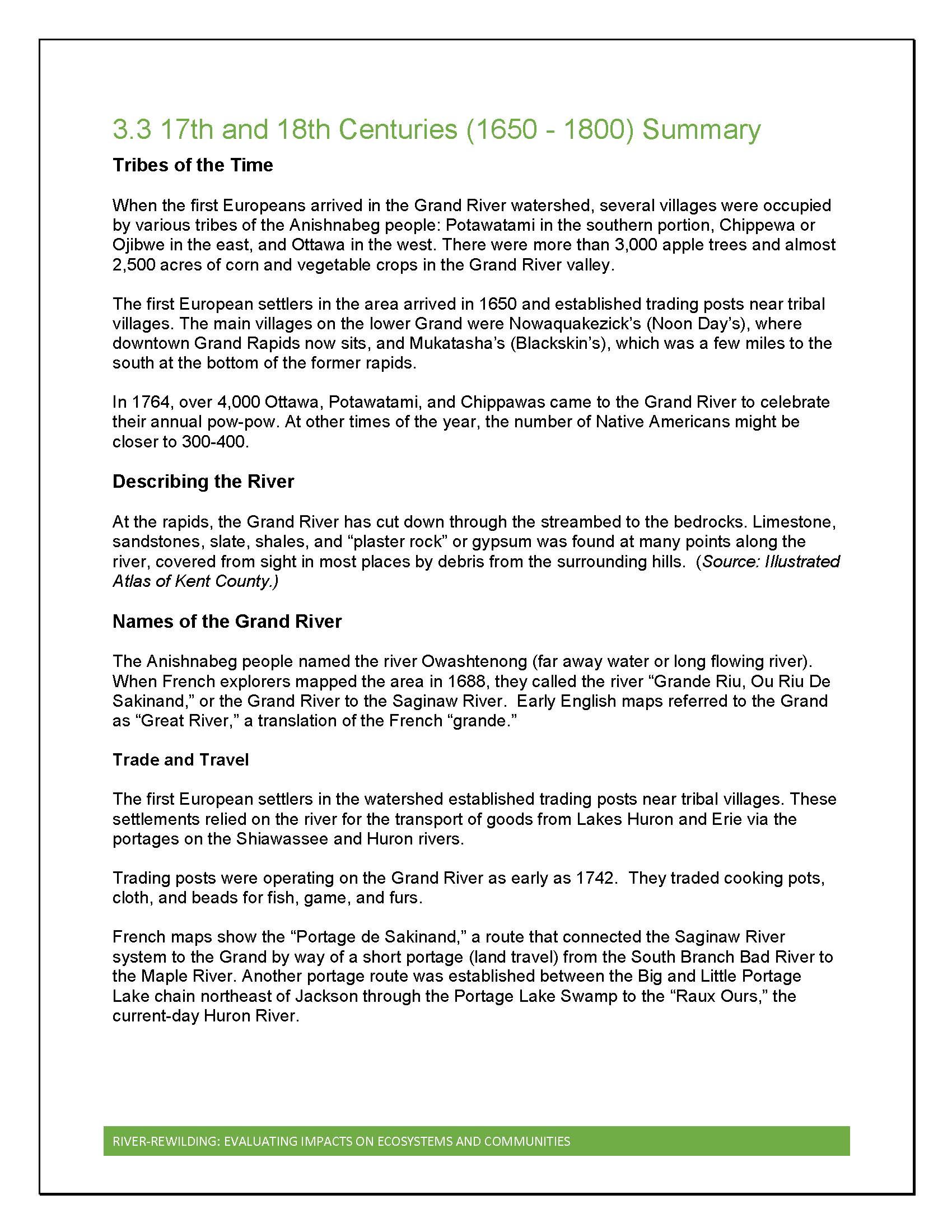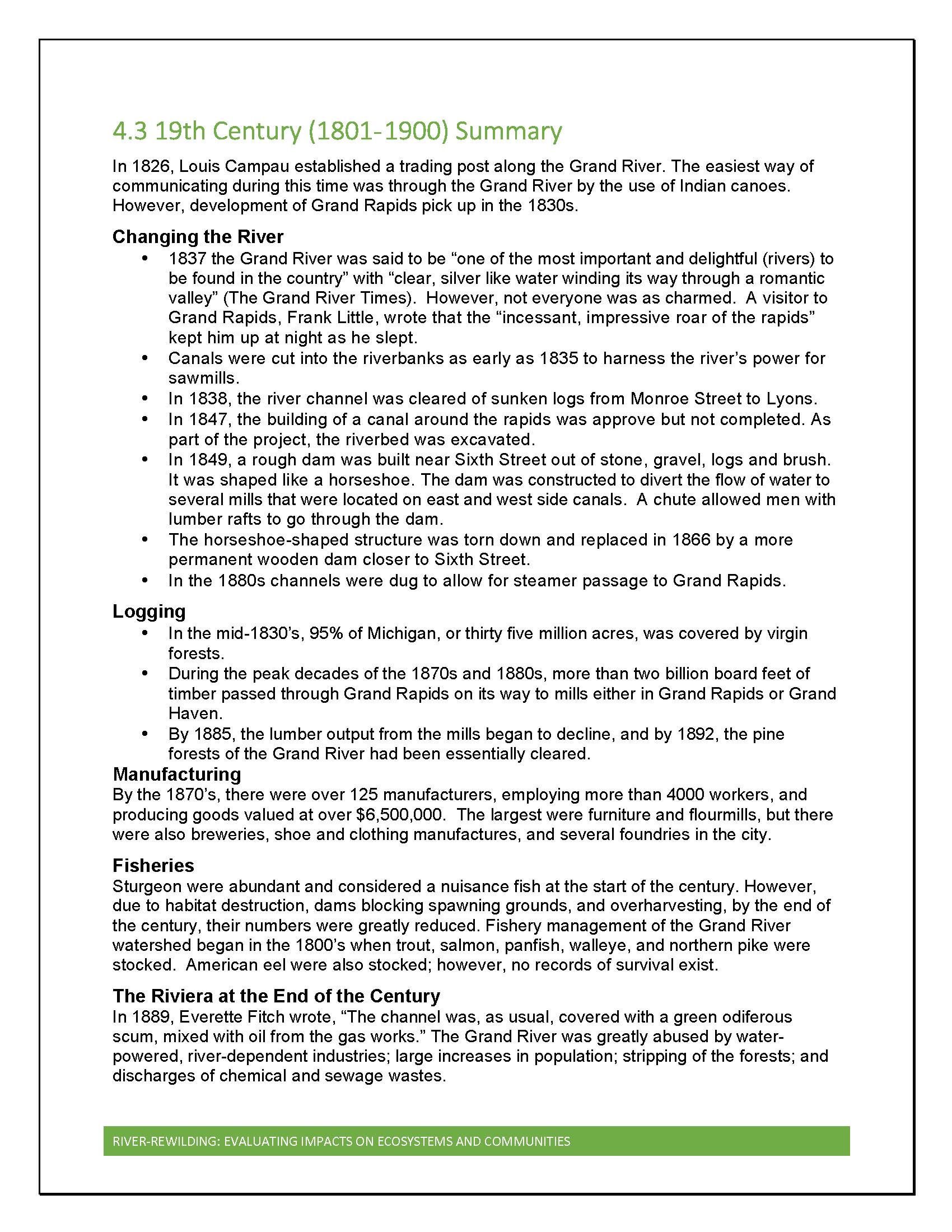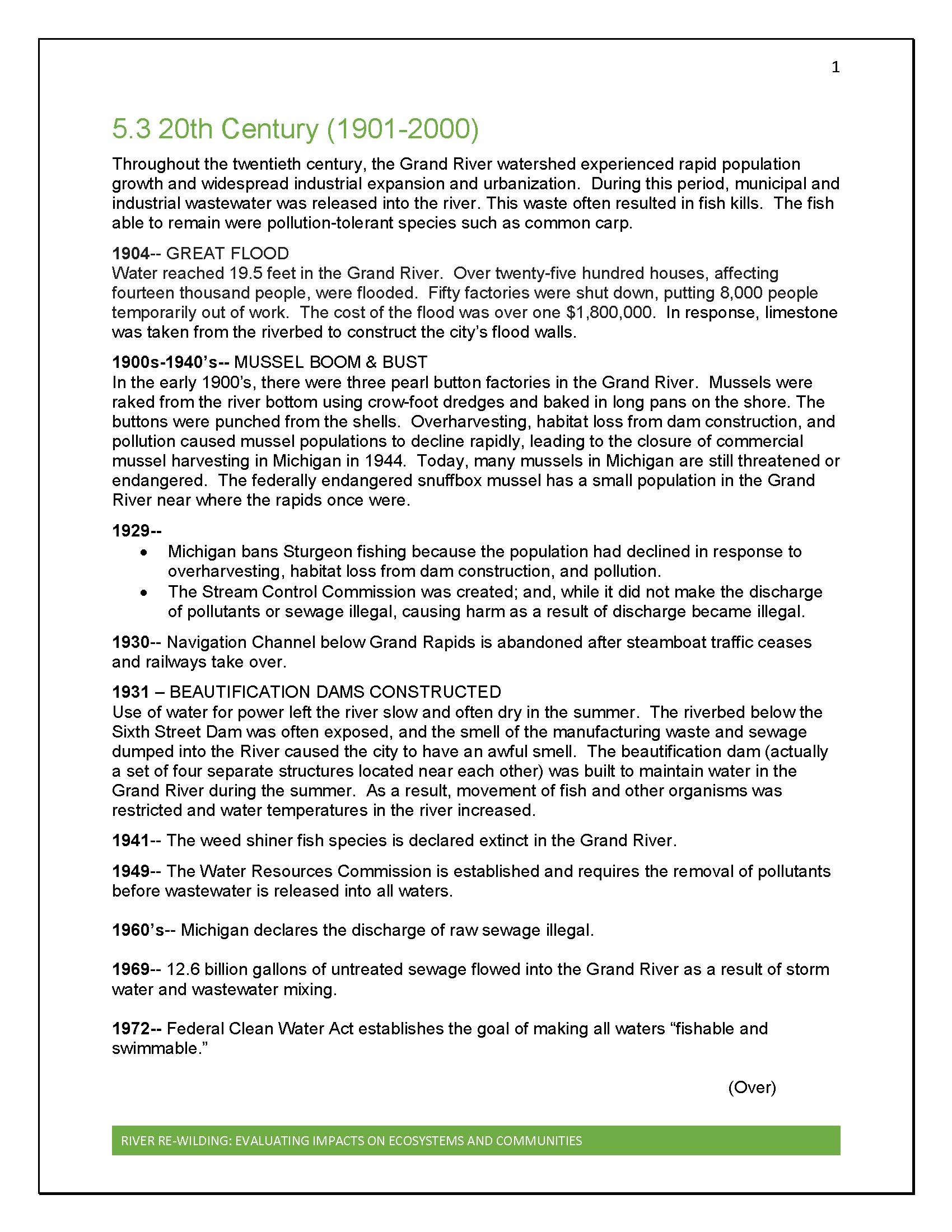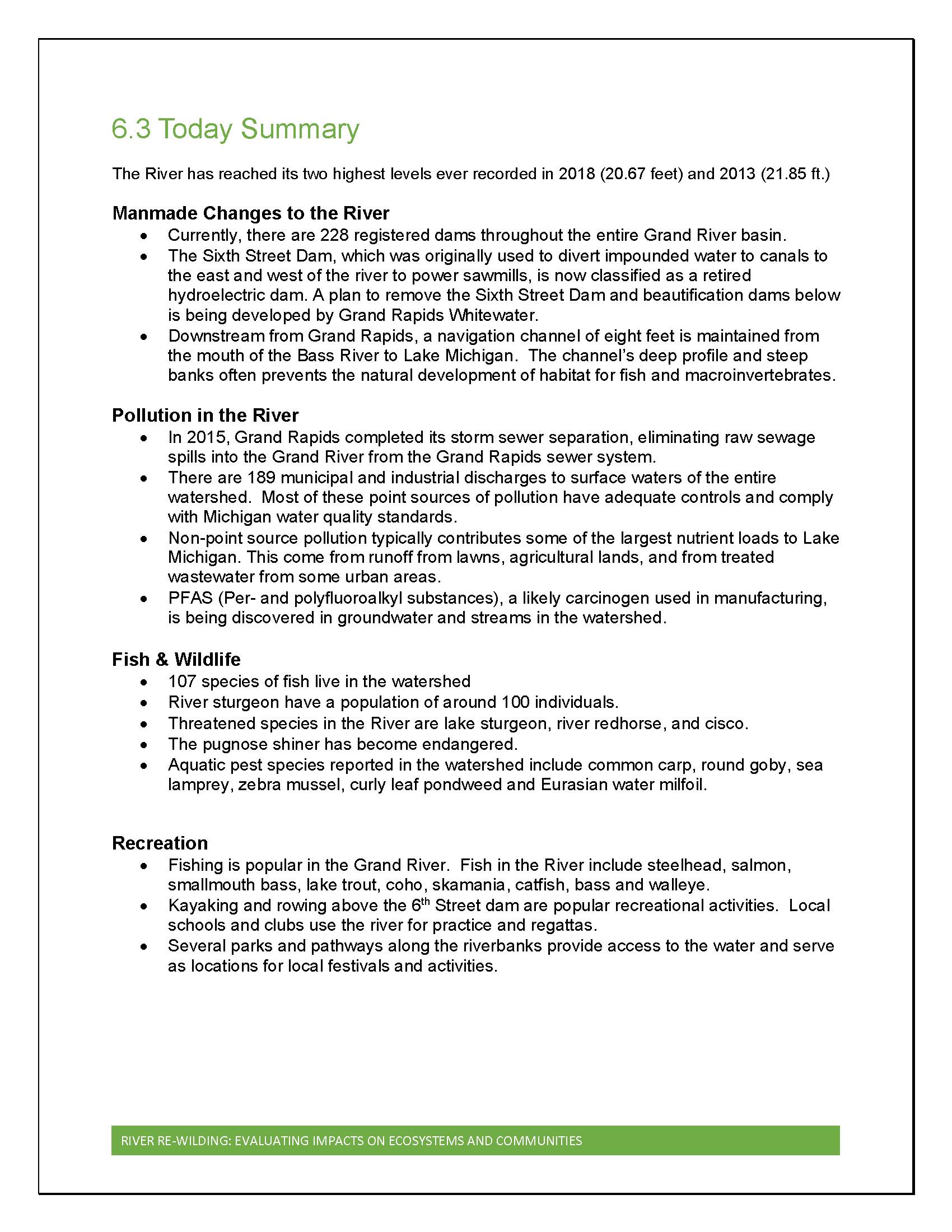River Rewilding: Grand River Social and Economic Impacts
Social and Economic Impacts
About
This unit examines the social and economic role that the Grand River has played in the community of Grand Rapids, Michigan. It begins with the Paleo-Indians and extends to the current day. Students will look at primary source readings, artifacts, and summaries of different periods. They will examine the role of the Grand River in society and the impacts of humans on the Grand River. Specifically, students will explore how the change in population and uses of the Grand River impacts river quality. Learn more about the Lesson Sequence and all the documents available to understand the Grand River's history.
More About This Resource
Grade Level
- Middle School
- High School
Estimated Time
- 1-2 class periods per activity
- 1-2 weeks for the full unit
Essential Questions
- How do human actions impact the Grand River?
- What role does population size play in the impact of human actions on the Grand River?
- How has society's view of the Grand River changed over time?
- What might we do to mitigate the impacts of human activity?
Build interdisciplinary place-based education connections. Facilitating students' understanding of the history and culture of their place can build local context as they investigate their selected issue.
History and Economy of the Grand River in Grand Rapids
Video Overview
This four-minute video describes the Grand River's role in the economy and culture of the people who settled along its banks. A description of the Grand River Revitalization Project is also provided.
1.1 Social and Economic Impacts Unit
Unit Overview
The history of the Grand River is divided into six eras, from Pre-settlement to Today. As outlined in the Unit Overview, each era has three resources associated with it:
1. A primary source reading related to the Grand River
2. Artifacts about the Grand River from that era
3. Summary of what happened to the Grand River during that era
Depending on the needs of your classroom, these eras could be covered as a whole class activity over a series of days, or small groups could become experts on their era and then share their findings with their classmates. Group sharing is easily facilitated by creating a large timeline on a wall using butcher paper and having students add details and share out about their era.
1.2 Social and Economic Impacts Lesson
Student Exploration of History of the Grand River
Lead students on an exploration of the history and culture of the Grand River through different eras of time with primary source documents, artifacts, and summaries of events. Students can complete the 1.2a Social and Economic Impact student page to build an understanding of the people and events over time surrounding the Grand River. As the unit progresses through different eras, students can individually create their own graphs depicting population trends and significant events. Alternatively, the class could collaborate to produce a large wall graph. The Lesson Sequence also contains an overview of all the documents, artifacts, and summaries in the lesson.
Artifact Packets
Exploring Artifacts
Have students spend some time looking at and interpreting the artifacts. You might elect only to use one or two artifacts for a deeper examination, or you might want to offer a larger selection so students can gravitate toward the ones that speak to them. Practice with students making observations about the objects and inferences about what the objects imply about life at this time. What questions do they have about the people of this time?
Primary Source Readings
Exploring Primary Source Documents
After reading their articles, have students predict what they think life was like during this time period.
Summaries
Summary of River Events/Changes
Summaries provide students with information about some important events from the era they are studying. Students can complete their era’s portion of the graph, putting in the important events of the time.

